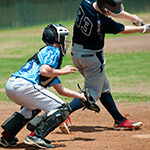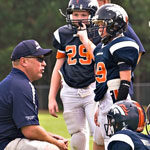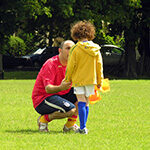Help Athletes Get Through Slumps
Every Athlete Experiences Rough Spots or Slumps Many times, young athletes get in trouble when they focus too much on their most recent disappointing results. This trap is called being mentally “nearsighted.” They focus too much on their recent bad results or performance slump. They tend to expect to be … Read Sport Psychology Tip






